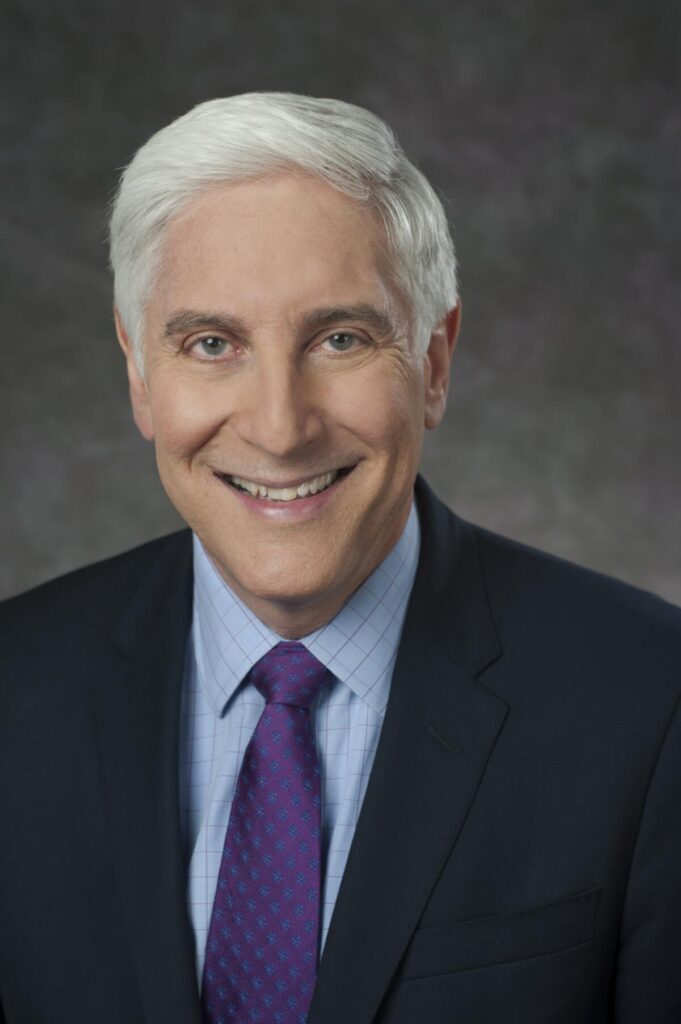Like many successful people in Hollywood, Norman Lear was among those who could be counted on to make philanthropic contributions to his favorite causes.
But the legendary producer and writer, who died Tuesday at 101, didn’t just give at the office. He had a reputation as a benefactor who did not require a plaque on a wall in return for his contributions.
Dr. Jonathan LaPook, chief medical correspondent for CBS News, has been married to Lear’s daughter Kate since 1985. Over the years, he saw his father-in-law’s penchant for helping people with acts of generosity and kindness that were not publicized.
The one story Lear did enjoy telling family members was an encounter years ago with a New York City cab driver.
“He was talking to her about her life,” LaPook recalled in a phone interview. “She was driving for years to put her kids through college and was finally putting the last one through. Norman said, ‘Well what are you going to do now?’ and she said, ‘I’ve got to drive a few more years because I’d like to go to college, too.’”
Lear told her, “No, you’re not — I’m putting you through college.”
While tuition payments were not always involved, such exchanges were not unusual for Lear. “He loved learning about people,” LaPook said.
Dr. Jon LaPook, chief medical correspondent for CBS News.
(John Paul Filo)
Lear, who turned out the groundbreaking, enduring TV hits “All In the Family,” “Maude” and “The Jeffersons,” thrived for years after many of his contemporaries who worked during the golden age of television did not. However, he did not forget them as friends, and LaPook said he was known for providing financial support to some, including a prominent Hollywood TV agent in his later years.
“It wouldn’t surprise me at all if he was surreptitiously picking up the tab for a lot of people,” LaPook said. “He was not a person who broadcast his generosity. He did a lot of it carefully so as not to embarrass people. It wasn’t about being self-aggrandizing.”
LaPook noted how Lear freely gave his time and knowledge to people looking for guidance in their professional and personal endeavors.
“There’s a warehouse with thousands of letters from people who are grateful for correspondence they had with him for advancing their careers or just giving them advice about their lives and their passions,” he said.
Becoming part of Lear’s circle had other benefits. Sundays at the TV legend’s Los Angeles home were often known as “Loews Lears.” A large group of guests would gather in his home for a screening of two feature films, often with a meal in the middle.
LaPook also remembered Lear’s fatherly heroics when he was guest host of NBC’s “Saturday Night Live” in 1976, the show’s second season. A teenaged Kate flew out to New York and was planted in the studio audience for a routine Lear used to warm up the crowds who attended the taping of his shows at Television City.

Kate would be called up as a volunteer from the audience to tell a joke. She intentionally messed up and Lear feigned anger before letting everyone in on the gag.
When it came time for the live show, “SNL” executive producer Lorne Michaels decided to cut the bit for time and instructed Lear to introduce a short film when he came out. But Lear ignored him and went ahead and did the bit with Kate.
“I think Lorne didn’t talk to him for years,” LaPook said.
LaPook said Lear provided him with a lasting gift as well. After he married Kate, his father-in-law became one of his best friends. “I had a master class in life,” he said.
LaPook was involved in Lear’s medical care and even interviewed him for a 2021 segment on “CBS News Sunday Morning.” The final question to Lear, then 98, was about death.
“It’s the leaving that is the problem for me,” Lear told LaPook. “Going — who knows what’s out there. It can’t be all bad. But leaving — I can’t think of anything good about leaving.”

